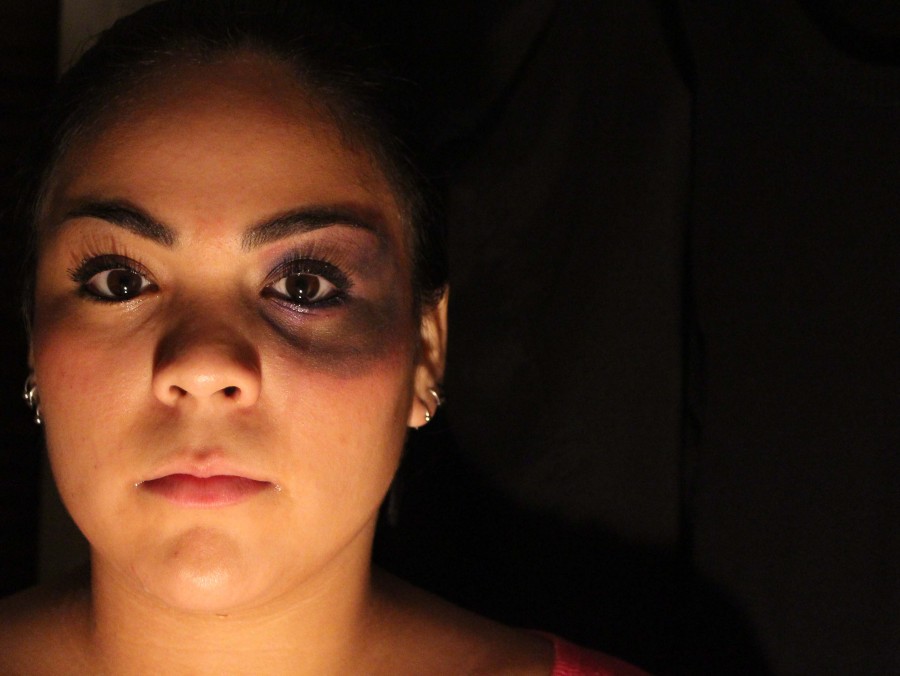A recent campus study revealed that bisexual women are more likely to experience sexual assault, compared to other members of the LGBTQA community.
The survey, titled Sexual Attitudes Behaviors and Experiences Survey II, was conducted by the Women’s Studies Department and focused on power issues. It also sought to understand people’s attitudes, beliefs and values about sexuality including unwanted sexual experiences.
UTEP students were randomly chosen and 701 participated in the study.
“Our basic finding was that bisexual women were at the highest likelihood of experiencing both attempted and completed sexual assault,” said Brenda Risch, director of the Women’s Studies Department and one of researchers of the study. They were much more vulnerable from the numbers that we came up with than gay men, lesbian women and transgender individuals.”
The findings have not yet been officially published, but the researchers have presented preliminary ones.
Gabriel Romero, senior liberal arts major and a member of the Queer Student Alliance, believes that stereotypes of bisexual women might explain the findings.
“People believe that by being bisexual you’re automatically being promiscuous. I could see that leading to people being objectified,” Romero said. “They’re reduced essentially to whatever people want of them.”
According to the study, 40 percent of males experienced attempted or completed sexual assault, compared to 58 percent of women. While 35 percent of gay men experienced attempted or completed sexual assault, compared to 56 percent of LGBQTA females.
“We think it’s really important to know about all sexualities. We’re not just asking about heterosexual sex,” Risch said.
A separate study by the School of Public Health analyzed 75 different studies on sexual assault among lesbians and found that bisexual and lesbian women may be three times more likely to report sexual assaults than heterosexual women.
Alice Castañeda, junior graphic design major, used to identify as bisexual, but now identifies as gay. Castañeda said bisexual women are stereotyped as just going through a phase.
“I think that creates a lot of tension towards bisexuals,” Castañeda said.
SABES II was based on and borrowed questions from a similar study done by Valdosta State University.
“They were also asking about sexual assault and the contribution of alcohol,” said Kathyrn Schmidt, assistant professor of social work and another researcher involved in the survey.
At Valdosta, a university with a large residential population, researchers found a high correlation to party rapes that happened when students got intoxicated at dorm parties.
“At a lot of those parties it became dangerous for women,” Schmidt said.
Clery crime statistics from Valdosta State reveal that in 2013 there was one reported forcible sex offense in the residence halls, while there were three on campus. In the same year at UTEP, there were three forcible sex offenses in the residence halls, and none on campus property.
“It (sexual assault) still needs to be reported, it still needs to be talked about,” said Romero. “It’s still something that feels taboo.”
Researchers at UTEP modified questions from the Valdosta survey, to be relevant to the borderland.
“We were interested in both domestic violence and sexual assaults,” Schmidt said. “In how the two went together, in part because sexual assault studies assume it’s by a stranger. Part of this is knowing that many students (at UTEP) live with their families.”
According to SABES II, 70 percent of straight respondents reported their assailants as being friends or past partners and 35 percent of LGBTQA respondents reported a mix of assailants: a mix of friends, partygoers, casual acquaintances and past partners.
“We saw, all across the board, that both men and women had experienced sexual conduct,” Schmidt said.
In contrast to the Valdosta study, the authors of SABES II wanted to investigate power in relationships, same-sex couples, domestic violence and have a better understanding of the Hispanic population.
“To better serve Latino and Latina students in terms of sexual assault and partner violence prevention, we should actually know more about the population we’re trying to serve rather than basing it on community knowledge,” Risch said.
Maria Esquinca may be reached at the [email protected].






